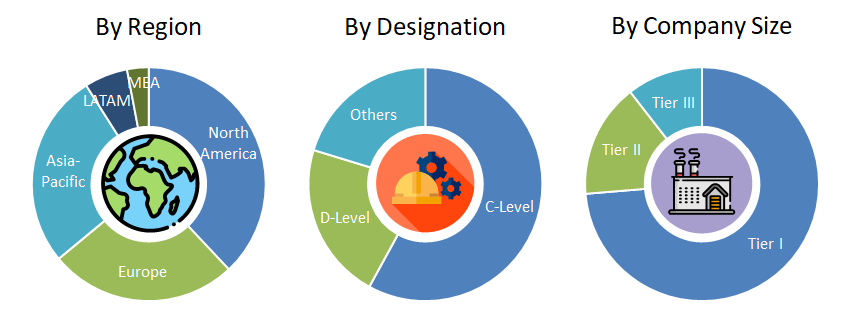Industry Overview
The Global Hydroponics Market size was valued at USD 39.6 billion in 2023. It is likely to grow up to USD 64.2 billion by 2030 at a CAGR of 7.4% during the forecast period ranging between 2025 and 2030.
This growth is primarily attributed to the rising demand for organic food production. People all over the world today look for pesticide-free food items. Slowly it is gaining popularity in vertical farming schemes due to the fact that plants grow much faster this way and being chemical free it meets the rising demand for organic food by consumers making it a worthy solution.
.png)
When plants are grown without soil, it is called hydroponics. Strange as it may seem, plants do really grow in this process using only the minerals and other nutrients in water. Plants are typically grown indoors, in a greenhouse, or other places with a controlled environment with properly managed temperature, light, nutrients and water.
Hydroponics is used extensively for commercial agriculture and urban farming where arable land is scarce or the condition of soil is poor. The significant benefits offered by it include faster growth of plants, water efficiency, and optimization of space. Hydroponics is also used in educational and for research purposes.
Global Hydroponics Market Trends/Growth Drivers:
Rapid Urbanization Increasing Local Food Demand
Rapid urbanization is one significant reason for the growth of the global hydroponics market. Urbanization causes scarcity of productive land while increases the local demand for food. Hydroponics can produce plants and food much faster than traditional farming systems and help meet the rising demand for food in these areas despite shortage of agricultural land without affecting the environment.
In addition to urban farming solution, other factors that promote the growth of the market include tech developments happening rapidly and continually. Innovations like vertical farming, automation, and energy-efficient and better performing LED lighting systemslower resource consumption and promotes crop yields. Hydroponics is also a more viable solution in urban farming atmosphere due to integration of advanced technologies like AI and IoT that enable real-time monitoring of nutrient level, plant health, and environmental conditions.Also, rising awareness for sustainability, climate change, soil degradation, and water scarcity are promoting the market growth.
Global Hydroponics Market Report Coverage
|
Report Metric
|
Details
|
|
Historical Period
|
2018 - 2023
|
|
Base Year Considered
|
2024
|
|
Forecast Period
|
2025 - 2030
|
|
Market Size in 2024
|
U.S.D. 39.6
|
|
Revenue Forecast in 2030
|
U.S.D. 64.2
|
|
Growth Rate
|
7.4%
|
|
Segments Covered in the Report
|
By Type, By Application, By System Size and By End User
|
|
Report Scope
|
Market Trends, Drivers, and Restraints; Revenue Estimation and Forecast; Segmentation Analysis; Impact of COVID-19; Companies’ Strategic Developments; Market Share Analysis of Key Players; Company Profiling
|
|
Regions Covered in the Report
|
North America, Europe, Asia Pacific and Rest of the World
|
Global Hydroponics Market Challenges
High Initial Cost
The initial investment for setting up the hydroponics systems is quite high which deters rapid adoption and offers a significant challenge to the growth of theglobal hydroponics market. Typically, these systems are much advanced and use sophisticated technologies and equipment that are expensive. This prevents startups and small-scale farmers to step into the market. Lack of expertise in operating and managing these systems also deters quite a few farmers to take up this farming solution.
Global Hydroponics Market Opportunities
Rise in urban farming needs
The opportunities for the growth of the global hydroponics market are however offered by the rapid urbanization that increases urban farming to offer people locally grown food since it is the most suitable farming process in regions where arable land is short. Integration with vertical farming and rising demand for sustainable farming practices also present novel growth opportunities to the market. Tech innovation also offers growth opportunities as it helps promote production even further.
Global Hydroponics Market Segmentation
VynZ Research provides an analysis of the key trends in each segment of the global building and construction market report, along with forecasts at the regional and country levels from 2025-2030. Our report has categorized the market based on type, application, system size and end user
Insight by Type
- Nutrient Film Technique system
- Wick system
- Deep Water Culture system
- Aeroponics Systems
The NFT segment dominates due to higher adoption
Nutrient Film Technique system, Wick system, Deep Water Culture system, and AeroponicsSystems are the major segments in which theglobal hydroponics market is divided based on the type where the Nutrient Film Technique systemsegment is likely to rule the market during the estimated perioddue to its higher adoption and capability to yield high crop volume at low cost.
Insight by Application
- Fruits and Vegetables
- Flowering Plants
- Herbs
- Medicinal Plants
Fruits and vegetables segment dominates due to rising demand for organic produce
Fruits and Vegetables, Flowering Plants, Herbs, and Medicinal Plants are the four segments of the global hydroponics market based on the application where the fruits and vegetables segment leads the market. Ot is mainly attributed to the steady rise in demand for fresh and organic food by consumers looking for chemical-free locally grown food to support their healthier food habits and lifestyle.
Insight by System Size
- Small-Scale
- Medium-Scale
- Large-Scale Systems
The large-scale system segment dominates due to higher adoption in commercial agriculture
The global hydroponics market is split by system size into Small-Scale, Medium-Scale, and Large-Scale Systems. Out of these three major segments, the large-scale system segment is expected to dominate in the study period due to higher adoption in commercial agriculture sector to meet the rising demand for bulk produce at lower cost.
Insight by End User
- Residential Users
- Commercial Growers
- Research Organizations
- others
The commercial growers dominate due to higher interest in urban farming
The global hydroponics market is also divided by different end users into Residential Users, Commercial Growers, Research Organizations, and others. The commercial growers dominate the market due to rising number, higher interest in urban farming, and greater need for space and resource optimization.
Global Hydroponics Market: Geographic Overview
- North America
- Europe
- Germany
- U.K.
- France
- Italy
- Spain
- Russia
- Rest of Europe
- Asia-Pacific (APAC)
- China
- Japan
- India
- South Korea
- Vietnam
- Thailand
- Malaysia
- Rest of Asia-Pacific
- Rest of the World (RoW)
- Brazil
- Saudi Arabia
- South Africa
- U.A.E.
- Other Countries
North America dominates the global hydroponics market, especially by United States and Canada, due to advanced technologies, higher demand for organic food, and rising government support.
The market in Europe is also growing steadily due to higher adoption in the UK, Netherlands, and Germany, greater emphasis on reducing environmental impact and sustainability, and availability of efficient resources.
The market in Asia Pacific region will grow at the highest rate due to rapid urbanization drives in countries like India, China, and Japan, which increase the demand for food. Supportive government initiatives are also fast-tracking market growth.
Global Hydroponics Market: Major Players
Global Hydroponics Market: Recent Developments
AeroFarms of USA has recently started a new facility for vertical farming in Danville, Virginia to produce additional fresh greens by 2 million pounds annually.
Hydrofarmof USA has launched a line of commercial hydroponic systems that supports automation and latest climate control technologies.




.png)
